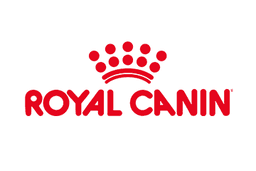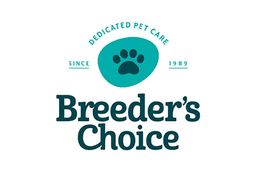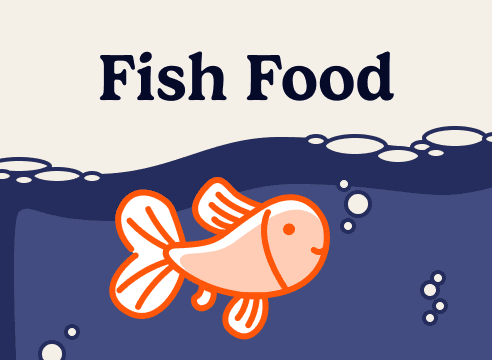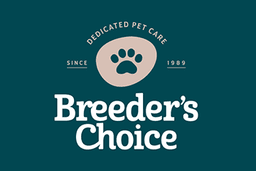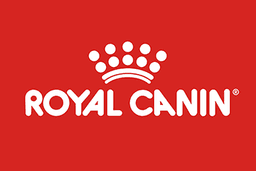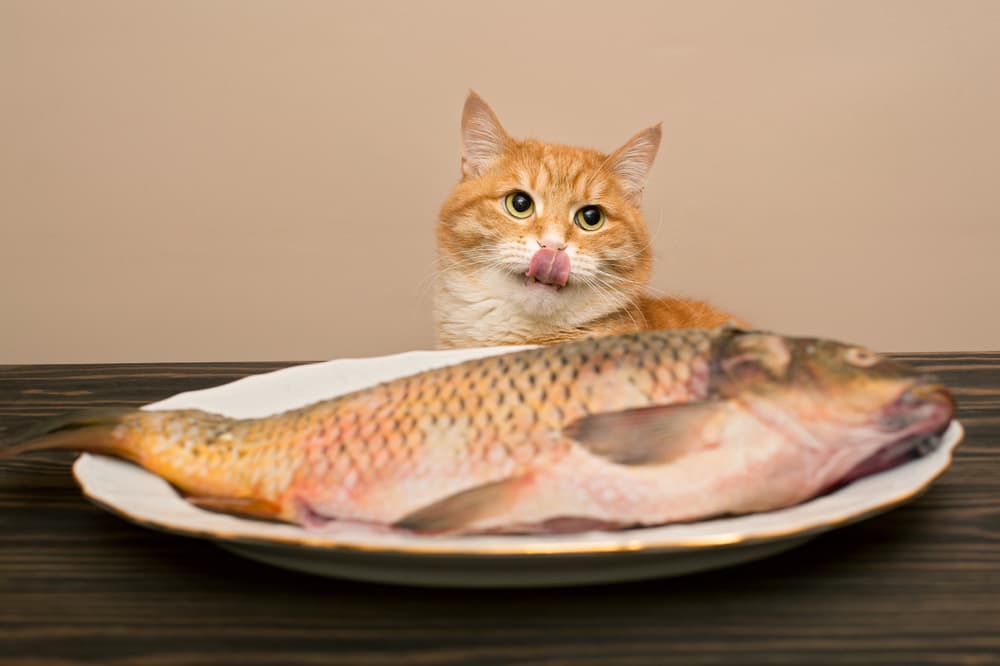Hold on a second. Can cats eat fish?
If you were to open a café for cats, it would be fair to assume your show-stopping, sell-out dish would be fish. Cats famously love seafood. Right?
Well, it looks like we might have all been led astray.
The truth? Consuming fish regularly is a no-no for your favourite feline friend.
Although fish is a super source of protein, it lacks other essential vitamins and minerals to ensure your cat has a balanced diet. This means a fish-heavy diet will negatively impact their long-term health.
Read on to find out which fish delights are safe to feed your cat. And what you’ll need to be mindful of.
Firstly, should my cat’s diet include fish at all?
Cats are obligate carnivores, meaning they’re a species that requires a 70% meat-and-fish diet. (Leaving a small percentage to grains and vegetables.)
So, yes. Cats are designed to digest meat and fish. But when it comes to cat’s essential nutrient needs, fish falls very short.
Think of fish as your cat’s version of hot chips and chocolate cake. To them, it smells good and tastes good – even a live fish with reflective scales looks mouth-watering to them! But just like chips and cake are our ‘sometimes’ food, fish is a treat your feline friend can enjoy every now and then.
Okay, we know what you’re thinking: If fish is off the daily meal rotation, what do I feed my cat?
Your kitty requires a specific, nutrient–dense diet to maintain good long-term health.
So when doing your cat's groceries, check the ingredient list. To keep them happy and healthy, you want to see chicken or lamb as the number one ingredient – followed by taurine, vitamin A, vitamin B12, zinc and calcium.
Can my cat eat raw fish?
Ever wondered why you never see cats sitting at the sushi train? It’s because our meow pals can’t eat raw fish. Ever.
Here’s why: Cats need to maintain a healthy level of thiamine – an essential B vitamin. And raw fish has an enzyme that works to wipe out that thiamine from your cat’s body.
With too little thiamine, cats may face severe neurological issues, such as impaired vision, ataxia, tremors, seizures and even a coma.
Not only that, but raw fish is also a breeding ground for dangerous parasites and bacteria, such as E. Coli and salmonella.
The ideal fish dish? Serve your cat baked, grilled, or boiled white fish without added salt or seasoning.

What Can Cats Eat? What is and isn't Safe for Your Cat
Okay, so what fish can my cat eat?
Can my cat eat canned tuna? Sometimes.
Any feline owner will know, cats love tuna. In fact, they can often get obsessed with it – refusing to eat anything else.
But as tuna has a high level of mercury, this obsession must be contained.
When overconsumed, tuna can cause mercury poisoning – leading to severe neurological damage to your cat.
Tuna is also a predator of the sea, meaning they gobble up a lot of other sea creatures with heavy metals and toxins. Another reason your kitty shouldn’t consume it too frequently.
Can my cat eat salmon? Yes.
Good news! Salmon passes the fishy fitness test.
This pink fish is packed with protein, vitamins and minerals. It also has a healthy helping of Omega-3 and Omega-6 fatty acids – good for your cat’s skin and hair.
However, the salmon used in commercial cat food is often farmed – meaning it's exposed to pollutants, toxins and bolstered with antibiotics to prevent disease.
So make sure your salmon is sustainably farmed.
We’re sure you like to jazz up your own salmon dish with seasonings. But for your cat’s sensitive belly, it’s best to refrain from flavouring with herbs and spices.
What about smoked and cured salmon? Well, as they come with a high dose of sodium, your cat needs to stray far away.
Can my cat eat sardines? Sometimes.
As they’re high in Omega-3 fatty acids, vitamin B12 and protein, sardines are a tasty treat for your cat.
But be careful. They have a high fat content – so you’ll need to limit the fun if your cat is watching their waistline.
And again, avoid adding flavour with garlic, onion and tomato. Don’t worry, your cat will still experience a taste explosion without them.
Can my cat eat octopus? Yes.
With high iron, copper, and zinc, a small and occasional nibble of octopus can do your cat a whole lot of good. As long as it’s fresh, cleaned… and cooked!
But once again, keep octopus as a ‘sometimes’ treat. If overeaten, its high level of cholesterol can cause obesity and diabetes – both affecting the long-term health of your feline fluff ball.
What should I be careful about?
To be completely safe, avoid fish bones altogether. As you can imagine, the little bones can easily get lodged in your cat’s throat – or even their digestive system.
However, fish bones do contain calcium. So if you choose to serve them up, make sure you cook and soften them first. And just in case there’s a choking saga, keep an eye out as they snack.
Fish in commercial cat food
What’s in the tin? Often it’s the fish offcuts that humans can’t consume, such as ground-up bones, guts, and other less-than-appealing fish bits.
That means the nutritional benefits are low, and the magnesium and phosphorus contents are high – risking damage to your cat's kidney or issues in their urinary tract.
Also, bear in mind that commercial cat foods often contain preservatives (to extend shelf life). These nasty extras can cause problems with your cat’s liver function.
So be sure to check the labels and do a little research.
To be completely safe, avoid fish bones altogether. As you can imagine, the little bones can easily get lodged in your cat’s throat – or even their digestive system.
However, fish bones do contain calcium. So if you choose to serve them up, make sure you cook and soften them first. And just in case there’s a choking saga, keep an eye out as they snack.
Fish in commercial cat food
What’s in the tin? Often it’s the fish offcuts that humans can’t consume, such as ground-up bones, guts, and other less-than-appealing fish bits.
That means the nutritional benefits are low, and the magnesium and phosphorus contents are high – risking damage to your cat's kidney or issues in their urinary tract.
Also, bear in mind that commercial cat foods often contain preservatives (to extend shelf life). These nasty extras can cause problems with your cat’s liver function.
So be sure to check the labels and do a little research.
Pause before serving tinned fish! Remember to drain it. Brine is too salty, and oil is too calorie dense.
Fish can be a tasty treat for your cat, but it’s essential to serve it safely and in moderation. Always avoid raw fish, be cautious with bones, and be mindful of the type of fish you’re offering. When it comes to commercial cat food, take the time to check labels and understand what’s really inside. By being informed and careful, you can ensure that fish remains a healthy and enjoyable part of your cat’s diet.
Want to make sure your cat is hitting their 70% meat target?




